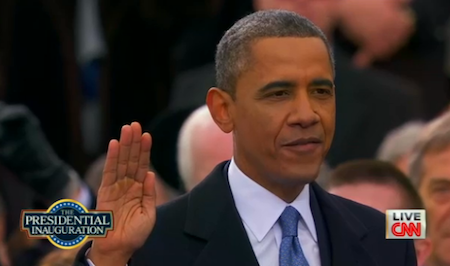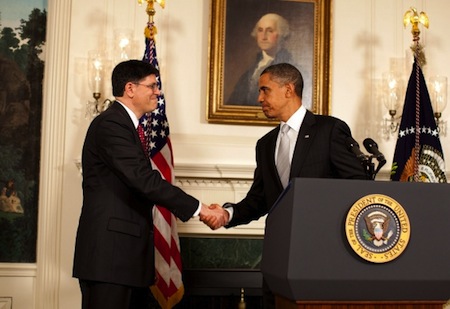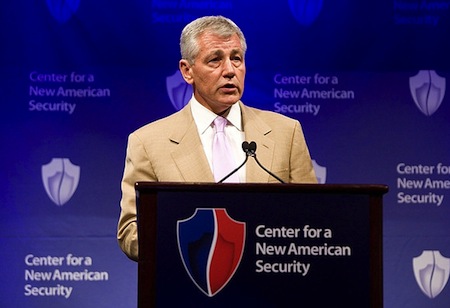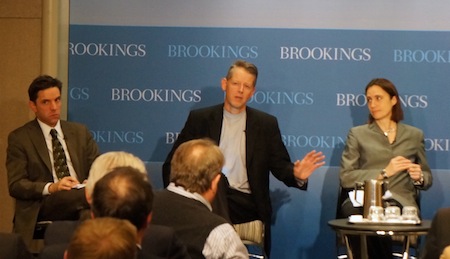Of course, most Americans this weekend aren’t thinking about the Cypriot presidential election or even the relatively higher-impact Italian elections, but the results of yet another election this weekend in Hollywood — the winners of the 85th Academy Awards. ![]()
![]()
![]()
It’s been a very foreign-policy heavy year for the Oscars.
Zero Dark Thirty, a nominee for best picture, depicts the raid that led to the death of al-Qaeda leader Osama bin Laden in Pakistan two years ago. It’s ignited anew a political thunderstorm over the use of torture (ahem, I mean enhanced interrogation techniques) in procuring information by the United States in its fight against radical Islamic terrorists.
Argo, another nominee for best picture, directed by Ben Affleck, depicts the daring 1979 raid in Iran by CIA operatives and other, mostly Canadian, nationals to rescue six diplomats from Tehran during the Iran hostage crisis. Former U.S. president Jimmy Carter, who approved the raid while in office, and top film critic, recently gave the film two thumbs up.
Indeed, it’s a highly international year for the awards, given that Amour, an Austrian film is up for both best foreign language film and best picture, and Life of Pi, a film based on Yann Martel’s novel of the same name, which won the 2002 Booker Prize, is also up for best film.
Even if the Academy’s rule limiting each country to just one nominee for best foreign film in a year is outdated, No, Chile’s first nomination for best foreign film, stars Gael García Bernal in an impressive picture about the end of Augusto Pinochet’s autocratic rule in that country in 1988. Nanni Moretti, perhaps the best living director in Italy, will have been disappointed that his Habemus Papam (‘We Have a Pope’), was not nominated, despite the film’s sudden timeliness.
Joshua Keating at Foreign Policy surveys the recent history of films that weigh the issues of U.S. foreign policy, especially in the post-9/11 phase and ponders whether Hollywood itself has a discernible foreign policy view and how that could change in the future:
One big question going forward is whether Hollywood’s increasing reliance on international audiences will affect the kinds of stories that get told. The Academy has shown itself to be more open to films with Indian protagonists like Slumdog Millionaire and The Life of Pi in recent years. Perhaps it will soon be ready for a movie about America’s place in the world where the rest of the planet gets a speaking role.
But Keating ignores two short films that have been nominated for best live action short that, I believe, are really the future of Hollywood — Buzkashi Boys and Asad.
Buzkashi Boys (see trailer above) is a 27-minute film about two young boys in Kabul — and it might be my own favorite film from among the entire oeuvre of 2013 nominees.
Director Sam French has captured an incredibly beautiful side of Kabul — the snowy, mountainous backdrop has never made the war-zone city look more appealing — and in avoiding any direct mention to the 12-year U.S. military action there, has managed to show a side of Afghanistan that’s rarely seen and even more rarely appreciated in the United States. Notably — and unusually — the U.S. government helped bankroll the film, with a $220,000 grant from the U.S. state department.
It’s the first film shot in Afghanistan to be nominated for any Oscar awards.
The two young stars of the film, Jawanmard Paiz and Fawad Mohammadi, are in Hollywood for tonight’s Oscars, and French has started an education fund for Mohammadi, who French came to know on ‘Chicken Street’ in Kabul as one of many boys selling maps, gum and other small items to foreigners.
Asad, an 18-minute short film produced in South Africa, features a cast of Somali refugees currently living in South Africa, none of which are professional actors, an African version of neorealismo that examines the effects of nearly two decades of civil war and state failure in a small Somali fishing village. A far cry indeed from the over-the-top depiction of Somalis in Black Hawk Down, which won director Ridley Scott a ‘best director’ nomination in 2001.
In both cases, unlike the more well-known films Keating mentions, which as he correctly notes, all too often lump Muslims worldwide as an ‘undifferentiated mass of beards and hijabs,’ Buzkashi Boys and Asad alike both depict their protagonists in more tender, human, universal and relatable terms.
Regardless of whether either Buzkashi Boys or Asad wins tonight, both are well worth your time for a brief view into the cultures of both Afghanistan and Somalia.
Asad‘s trailer follows below: Continue reading Suffragio goes to the Oscars
















